Top Rankings
Goffstown School District ranks among the top 20% of public school district in New Hampshire for:
Category
Attribute
Graduation Rate
Highest graduation rate (Top 20%)
Community Size
Largest student body (number of students) (Top 1%)
For the 2025 school year, there is 1 public preschool serving 184 students in Goffstown School District.
Public Preschools in Goffstown School District have a diversity score of 0.20, which is less than the New Hampshire public preschool average of 0.29.
Minority enrollment is 11% of the student body (majority Hispanic), which is less than the New Hampshire public preschool average of 16% (majority Hispanic).
Overview
This School District
This State (NH)
# Schools
5 Schools
149 Schools
# Students
2,792 Students
39,813 Students
# Teachers
209 Teachers
3,470 Teachers
Student : Teacher Ratio
13:1
13:1
District Rank
Goffstown School District, which is ranked within the top 50% of all 189 school districts in New Hampshire (based off of combined math and reading proficiency testing data) for the 2021-2022 school year.
The school district's graduation rate of 93% has increased from 92% over five school years.
Overall District Rank
#64 out of 189 school districts
(Top 50%)
(Top 50%)
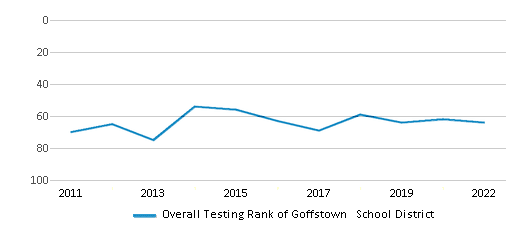
Math Test Scores (% Proficient)
48%
40%
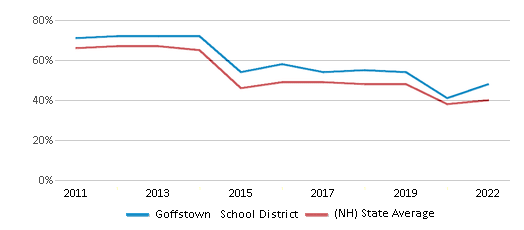
Reading/Language Arts Test Scores (% Proficient)
59%
51%
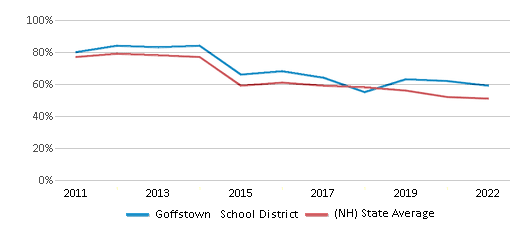
Science Test Scores (% Proficient)
42%
36%
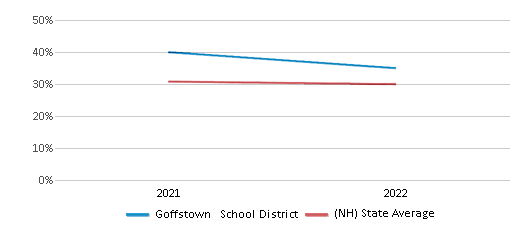
Graduation Rate
93%
88%
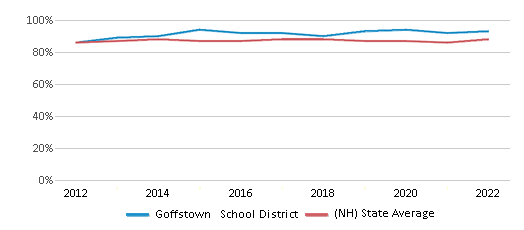
Students by Ethnicity:
Diversity Score
0.21
0.29
# American Indian Students
7 Students
71 Students
% American Indian Students
n/a
n/a
# Asian Students
32 Students
952 Students
% Asian Students
1%
3%
# Hispanic Students
118 Students
2,514 Students
% Hispanic Students
4%
6%
# Black Students
44 Students
807 Students
% Black Students
2%
2%
# White Students
2,479 Students
33,448 Students
% White Students
89%
84%
# Hawaiian Students
1 Student
29 Students
% Hawaiian Students
n/a
n/a
# Two or more races Students
111 Students
1,992 Students
% of Two or more races Students
4%
5%
Students by Grade:
# Students in PK Grade:
66
4,442
# Students in K Grade:
118
6,330
# Students in 1st Grade:
162
6,046
# Students in 2nd Grade:
177
6,232
# Students in 3rd Grade:
193
5,421
# Students in 4th Grade:
173
5,076
# Students in 5th Grade:
181
3,284
# Students in 6th Grade:
174
1,218
# Students in 7th Grade:
274
887
# Students in 8th Grade:
237
877
# Students in 9th Grade:
271
-
# Students in 10th Grade:
302
-
# Students in 11th Grade:
239
-
# Students in 12th Grade:
225
-
# Ungraded Students:
-
-
District Revenue and Spending
The revenue/student of $16,880 in this school district is less than the state median of $22,075. The school district revenue/student has stayed relatively flat over four school years.
The school district's spending/student of $15,750 is less than the state median of $21,293. The school district spending/student has stayed relatively flat over four school years.
Total Revenue
$47 MM
$3,646 MM
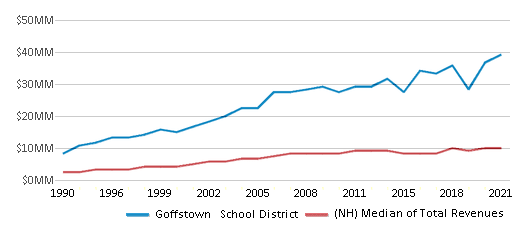
Spending
$44 MM
$3,517 MM
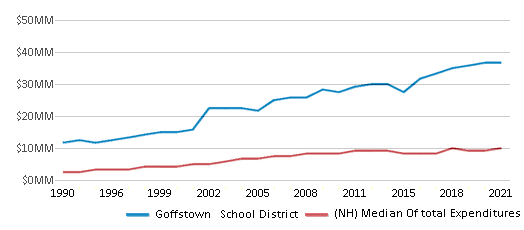
Revenue / Student
$16,880
$22,075
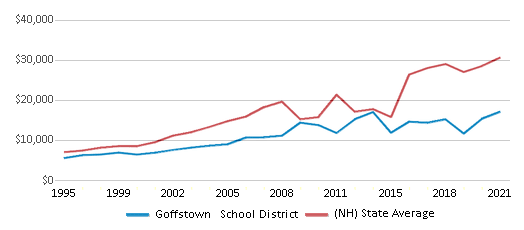
Spending / Student
$15,750
$21,293
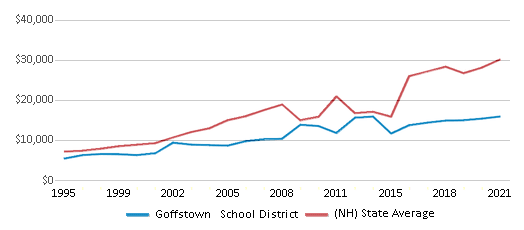
Best Goffstown School District Public Preschools (2025)
School
(Math and Reading Proficiency)
(Math and Reading Proficiency)
Location
Grades
Students
Recent Articles

Year-Round Or Traditional Schedule?
Which is more appropriate for your child? A year-round attendance schedule or traditional schedule? We look at the pros and cons.

Why You Should Encourage Your Child to Join a Sports Team
Participating in team sports has a great many benefits for children, there is no doubt. In this article you will learn what those benefits are.

White Students are Now the Minority in U.S. Public Schools
Increasing birth rates among immigrant families from Asia and Central and South America, combined with lower birth rates among white families, means that for the first time in history, public school students in the United States are majority-minority. This shift in demographics poses difficulties for schools as they work to accommodate children of varying language abilities and socio-economic backgrounds.





